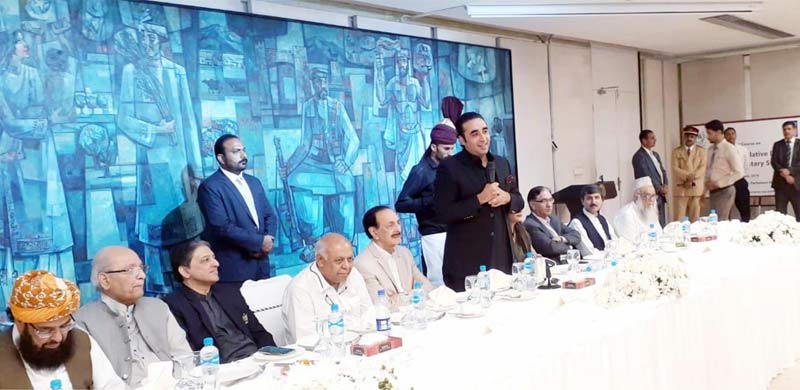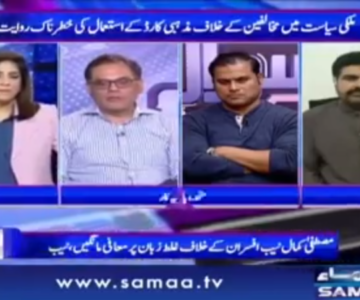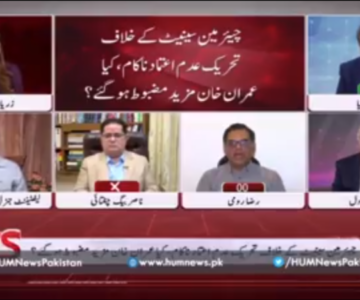Horse trading, pressure tactics and the old tools for ‘managed’ parliaments have been defeating democracy in the past. The failed motion against Chairman Senate Sanjrani is yet another addition to the sordid list, says Raza Rumi.
Chairman Senate Sanjrani has held to his position. A motion of no-confidence was defeated yesterday by three votes. Sanjrani leads the Senate not because he enjoys a majority but due to the defections of at least 14 Senators from the opposition parties.
According to the media reports, the biggest group of senators who voted against their party policy were from the Pakistan People’s Party (PPP) followed by another batch from Pakistan Muslim League (PML-N). Allegedly, a senator from Jamiat Ulema i Islam was also among those who rebelled against their firebrand leader.
This development has exposed the disunity among the opposition parties as well as the intense machinations that must have taken place before the count.
The opposition candidate Hasil Bizenjo in a dramatic statement named the chief of intelligence agency. The video of that statement has gone viral.
Remarks by Senator Mir Hasil Bizenjo implicating head of national premier institution are unfounded. The tendency to bring entire democratic process into disrepute for petty political gains doesn’t serve democracy.
— DG ISPR (@OfficialDGISPR) August 1, 2019
The horse trading, pressure tactics and such managed results take us back to the ignoble history of derailing democracy in Pakistan. A candidate without a majority leads a house and this violates the principle of parliamentary democracy as well as transparent election. While the role of establishment is well-known, it is a failure of political parties that are always ready to forge deals and aid the attainment of ‘favourable’ results to use a Ziaism from the 1980s.
سینیٹ میں تحریک عدم اعتماد کی ناکامی، پیپلزپارٹی کے سینیٹر مصطفیٰ نواز کھوکھر مستعفی pic.twitter.com/hAz8dq06WE
— Naya Daur Videos (@nayadaurpk_urdu) August 1, 2019
Benazir Bhutto in her first term (1988-1990) faced a no-confidence move within the first six months of her rule. That opened up the dishonourable practice of buying and selling MPs. This was not the first time that this happened.
Throughout history, Pakistan’s democratic actors and the unelected elites have conducted such operations. The Parliament of 2013-2018 attempted to plug the legal lacunae and inserted clauses that could penalise the MPs that sold their votes. Senate elections however were not covered under the changed legal regime.
Despite the efforts of PTI spokespersons, the government will face a huge dent in its credibility. A party and its leader that have chanted the corruption mantra have overseen blatant manipulation and it won’t be too long before details of who was offered what will come to light. Pakistan’s urban voters, the passionate support base of PTI, will be disenchanted with these developments.
Rumours are also afloat that there may have been some role played by the main political parties and their pressing agenda for a compact with the establishment that will lead to relief for the incarcerated leaders. In the case of PPP, an additional imperative might have worked, i.e. saving the Sindh government. These claims are unsubstantiated and once again it does’t take too long for the truth to come out.
The process of ‘streamlining’ the democracy project that started with the managed ‘change’ in Balochistan government in 2017 and the subsequent change in Senate leadership during 2016 has now come to a full circle.
Perhaps Mr Zardari, currently in jail, will have all the time to reflect over his Faustain bargain that impeded the process of deepening democracy and may have impaired the prospects of his idealistic son in the future politics.
As regards the establishment, we know that they like to be in charge. It is the politicians that repeatedly defeat the democratic process in pursuit of their short term, parochial and, more often than not, elite interests.


